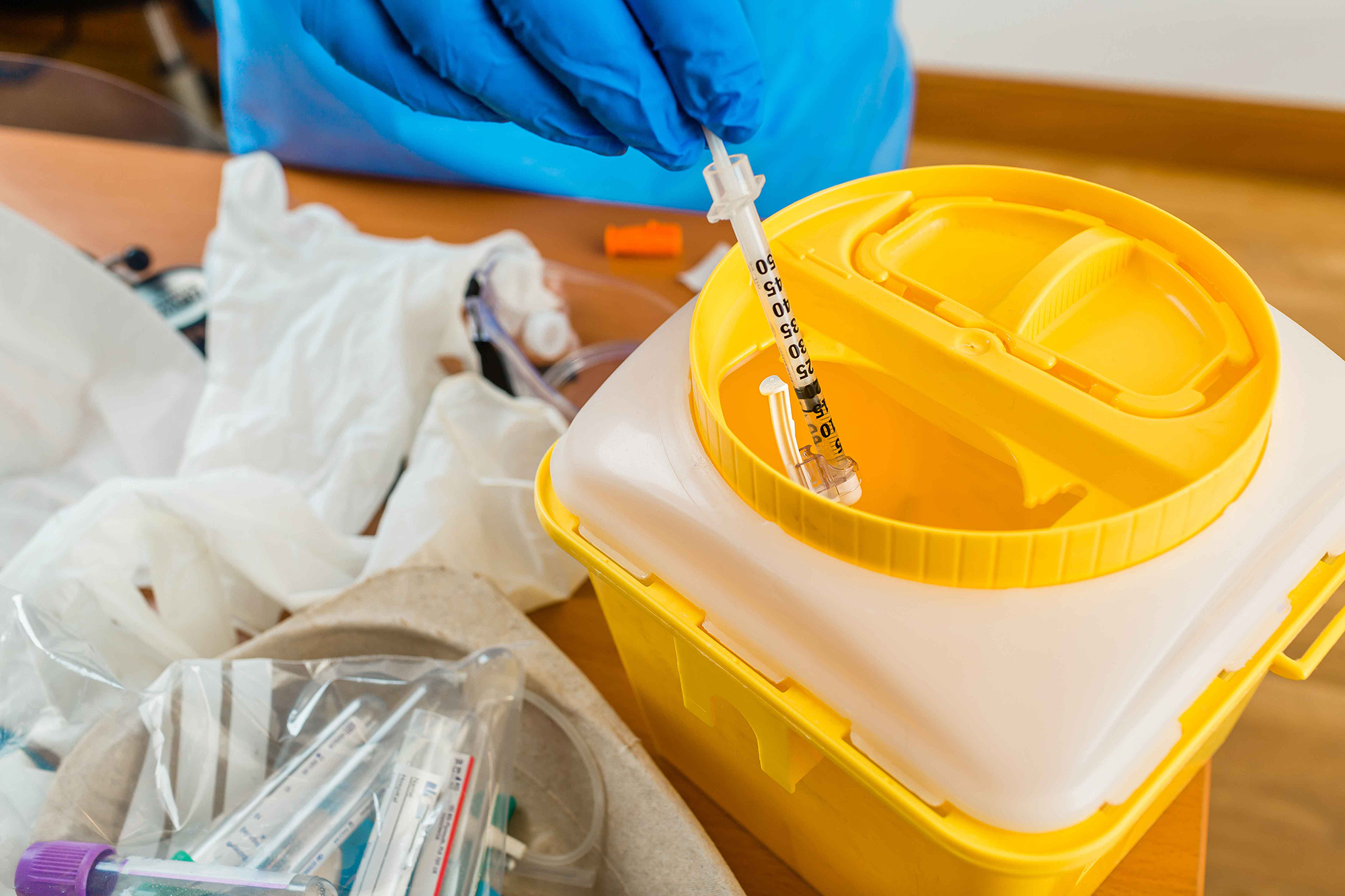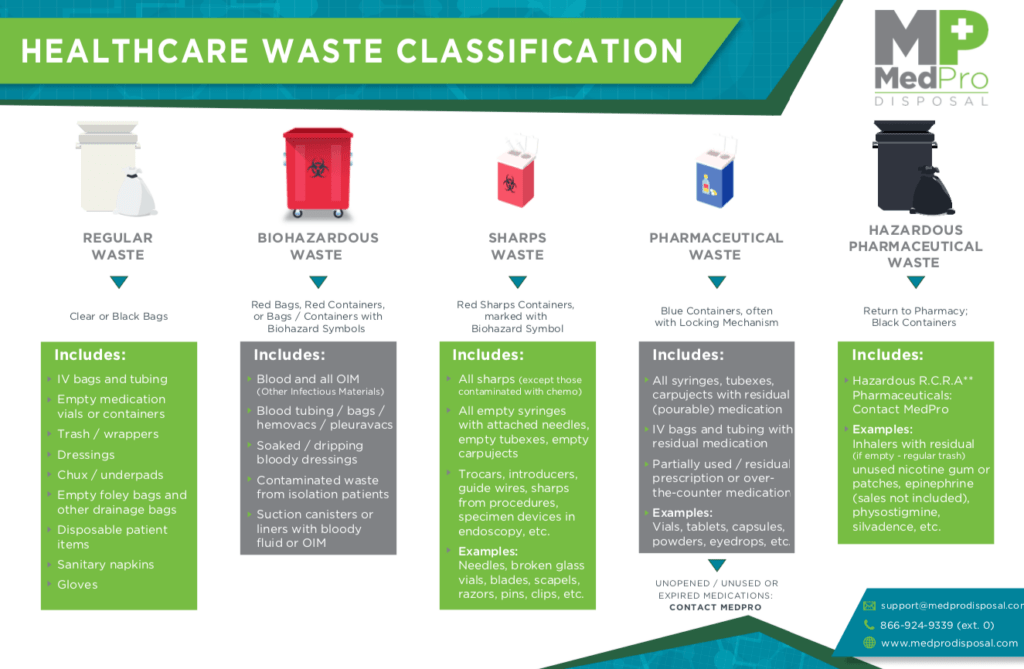Making Sure Safe Handling and Disposal of Medical Waste
Ensuring risk-free handling and disposal of medical waste is of paramount significance in health care setups. Incorrect administration of medical waste can position substantial threats to the setting, public health and wellness, and healthcare workers. In this introduction, we will explore the relevance of correct medical waste monitoring, the risks linked with incorrect handling and disposal, as well as the guidelines and approaches that can be carried out to ensure its safe disposal.
Relevance of Appropriate Medical Waste Administration
Appropriate clinical waste administration is of utmost significance in ensuring the safety and well-being of health care professionals, people, and the public. Medical waste refers to any kind of waste produced by medical care facilities throughout the medical diagnosis, therapy, or immunization of people or animals. This waste can position serious health and wellness dangers otherwise taken care of and gotten rid of correctly.
Among the primary factors why proper medical waste monitoring is important is to stop the spread of contagious illness. Medical waste, such as made use of needles, contaminated dressings, and biological products, can carry dangerous virus. If not handled and thrown away appropriately, these pathogens can be transferred to medical care workers, clients, waste trainers, and also the basic public, leading to the potential outbreak of conditions.
Additionally, correct clinical waste management assists secure the atmosphere - medical waste removal. Medical waste includes dangerous materials, including chemicals, pharmaceuticals, and contaminated substances. When not handled properly, these compounds can pollute dirt, water bodies, and the air, posturing a significant risk to environments and public wellness
In addition, effective medical waste management ensures compliance with worldwide standards and neighborhood regulations. Governments and governing bodies have actually developed guidelines and protocols to make certain the risk-free handling, storage, transportation, and disposal of clinical waste. Following these policies is vital to stay clear of lawful repercussions and maintain the reputation and reliability of healthcare centers.
Dangers of Improper Handling and Disposal

Patients can likewise be subjected to these transmittable diseases if clinical waste is not properly disposed of. For example, if polluted needles or other sharps are not thrown away in designated puncture-proof containers, they might unintentionally prick people, resulting in potential infections. In addition, if medical waste is not segregated correctly, there is a threat of cross-contamination in between various kinds of waste, more increasing the chances of disease transmission.
Improper disposal of medical waste can additionally have destructive impacts on the setting and the basic public. If medical waste is not dealt with and thrown away appropriately, it can contaminate water resources, soil, and air, bring about the spread of pollutants and diseases. This can have lasting consequences on communities and public health.
Standards for Safe Handling of Medical Waste
Applying reliable protocols for the risk-free handling of clinical waste is vital in making sure the security of health care professionals, patients, and the general public. These standards are crucial in decreasing the risks related to the handling and disposal of medical waste, such as infections, injuries, and ecological contamination.
Firstly, medical care facilities must establish a detailed waste administration plan that abides by neighborhood, nationwide, and global regulations. This plan needs to include clear instructions on waste segregation, product packaging, transportation, storage, and labeling. It is vital to separate different kinds of waste, such as sharps, contagious products, pharmaceuticals, and non-hazardous waste, to stop cross-contamination and promote safe disposal.
Additionally, healthcare workers have to obtain thorough training on correct waste handling methods. They need to be enlightened on the possible dangers of clinical waste, the proper use of individual safety equipment (PPE), and the appropriate procedures for managing, carrying, and getting rid of different types of waste.
Additionally, healthcare facilities ought to on a regular basis keep track of and audit their waste administration methods to make sure conformity with standards. This consists of conducting routine assessments, examining waste handling treatments, and providing feedback and training to employee.
Efficient Techniques for Garbage Disposal
To ensure the secure handling and disposal of medical waste, it is vital to employ reliable methods for garbage disposal. Medical waste can present considerable threats to public health and wellness and the environment if not managed and gotten rid of properly. As a result, healthcare centers and waste management organizations must execute proper strategies to mitigate these dangers.
It involves separating different kinds of medical waste based on their attributes. Healthcare facilities ought to offer clear guidelines and training to staff participants on exactly how to set apart waste appropriately.

Additionally, healthcare facilities ought to team up with qualified waste monitoring firms to make sure appropriate disposal of clinical waste. These business have the competence and equipment needed to securely get rid of and manage of medical waste in conformity with regulations and finest practices.
Training and Education And Learning for Health Care Professionals
Medical care experts play a critical role in making certain the secure handling and disposal of clinical waste through comprehensive training and education and learning. It is necessary for doctor to have a deep understanding of the prospective risks associated with clinical waste and the proper methods for its administration. By receiving proper training, healthcare specialists can lessen the potential transmission of contagious illness, protect against environmental contamination, and protect both themselves and the basic public.

Moreover, training programs need to highlight making use of personal protective tools (PPE) and proper hand health practices when handling clinical waste. medical waste removal service. Medical care specialists should recognize how to correctly use and get rid of of PPE to protect themselves from possible direct exposure to harmful materials. They ought to also be informed on the significance of normal handwashing and the proper use of hand sanitizers to decrease the spread of transmittable illness
Continuing education and learning and normal updates on clinical waste monitoring practices are vital for healthcare specialists. As guidelines and guidelines advance, it is necessary to maintain health care carriers notified regarding any type of adjustments in protocols and best methods. This will certainly make sure that they stay updated and maintain a high criterion of security in handling and getting rid of official site of medical waste.
Conclusion
In final thought, correct handling and disposal of clinical waste is important to guarantee the safety of medical care specialists, people, and the setting. By adhering to these practices, we can mitigate the prospective threats linked with clinical waste.
Medical waste refers to any type of waste generated by healthcare facilities during the diagnosis, therapy, or immunization of animals or humans. If clinical waste is not segregated properly, there is a risk of cross-contamination between different types of waste, additional boosting the possibilities of disease transmission.
It is crucial to divide various types of waste, such as sharps, contagious products, pharmaceuticals, and non-hazardous waste, to prevent cross-contamination and advertise risk-free disposal. WasteX Medical Waste Disposal.
To ensure the safe handling and disposal of medical waste, it is vital to employ efficient strategies for waste disposal. Furthermore, healthcare facilities ought to establish a regular waste collection and transport routine to prevent waste buildup and minimize the risk of mishaps or contamination.